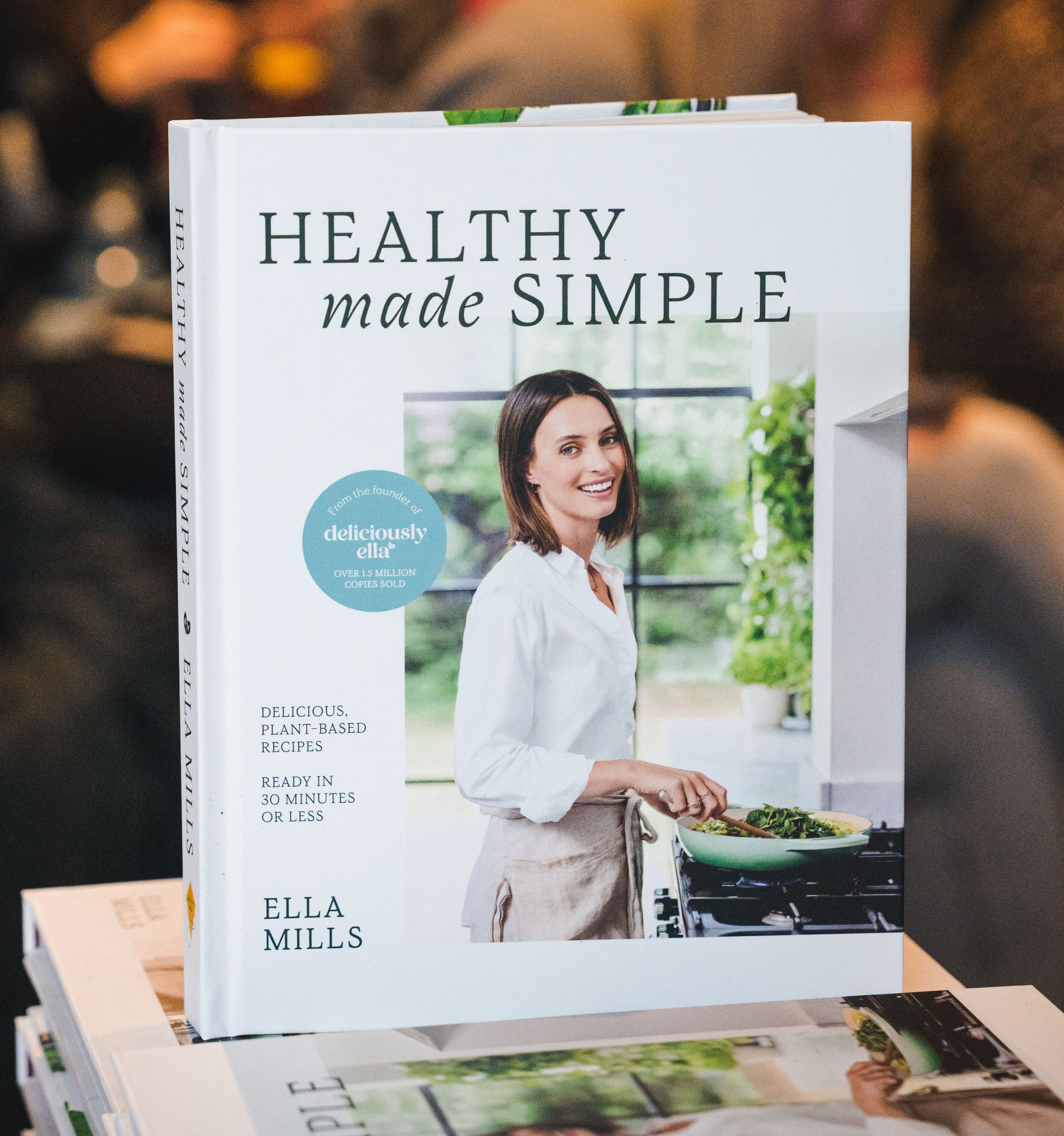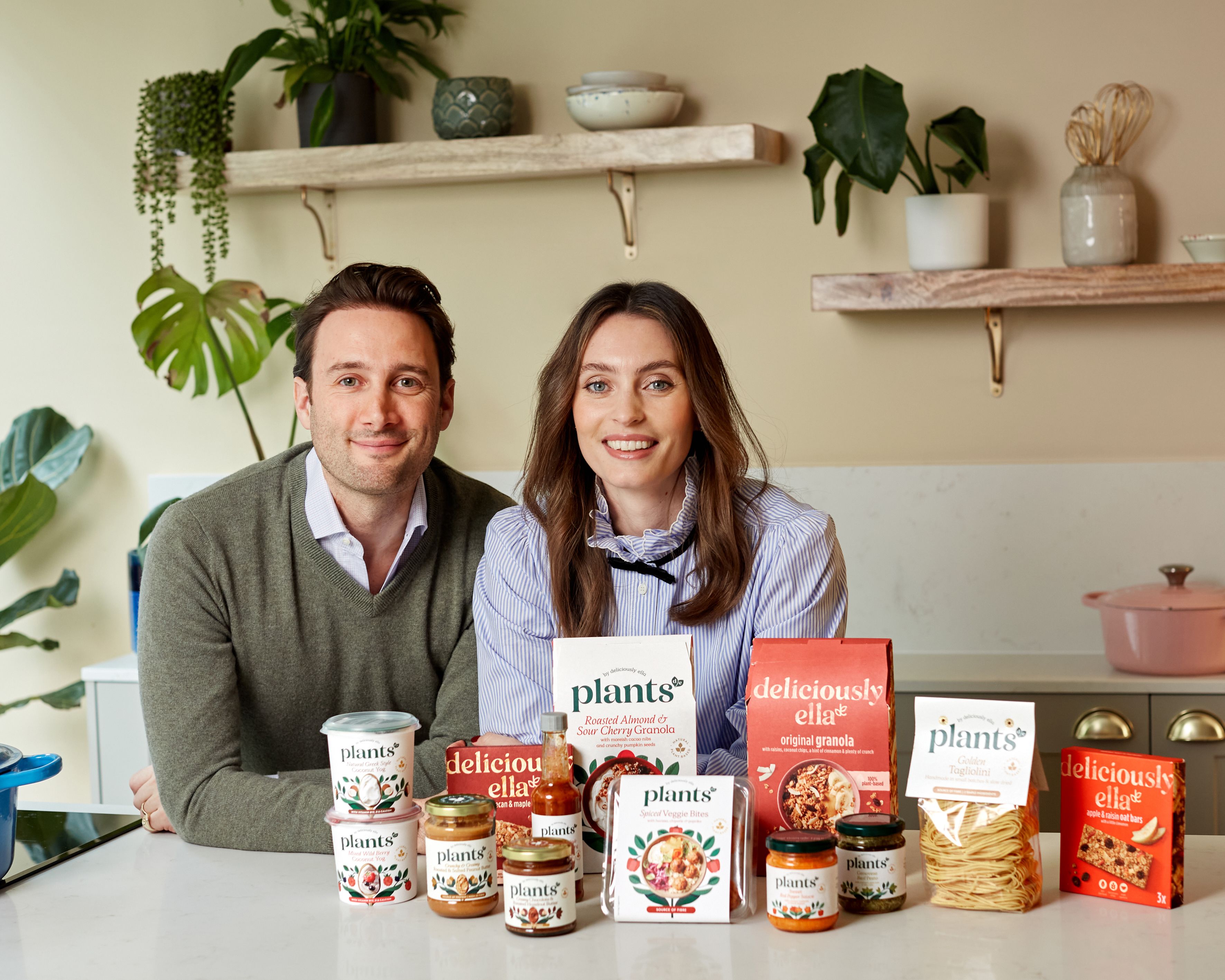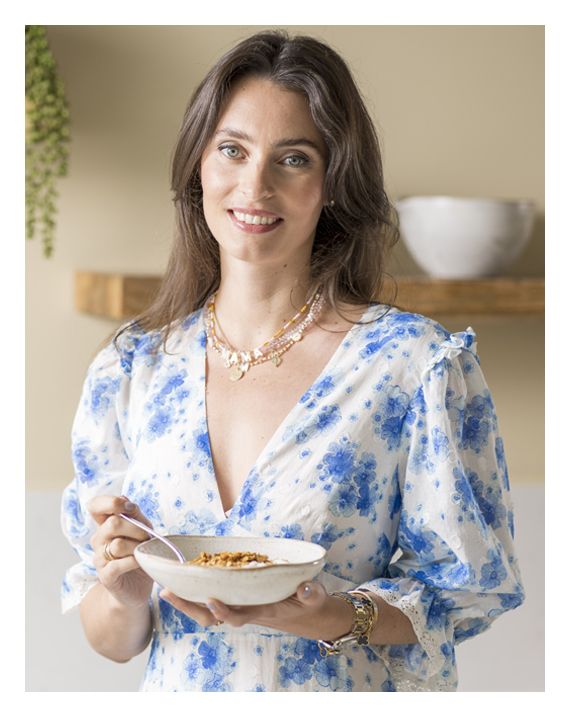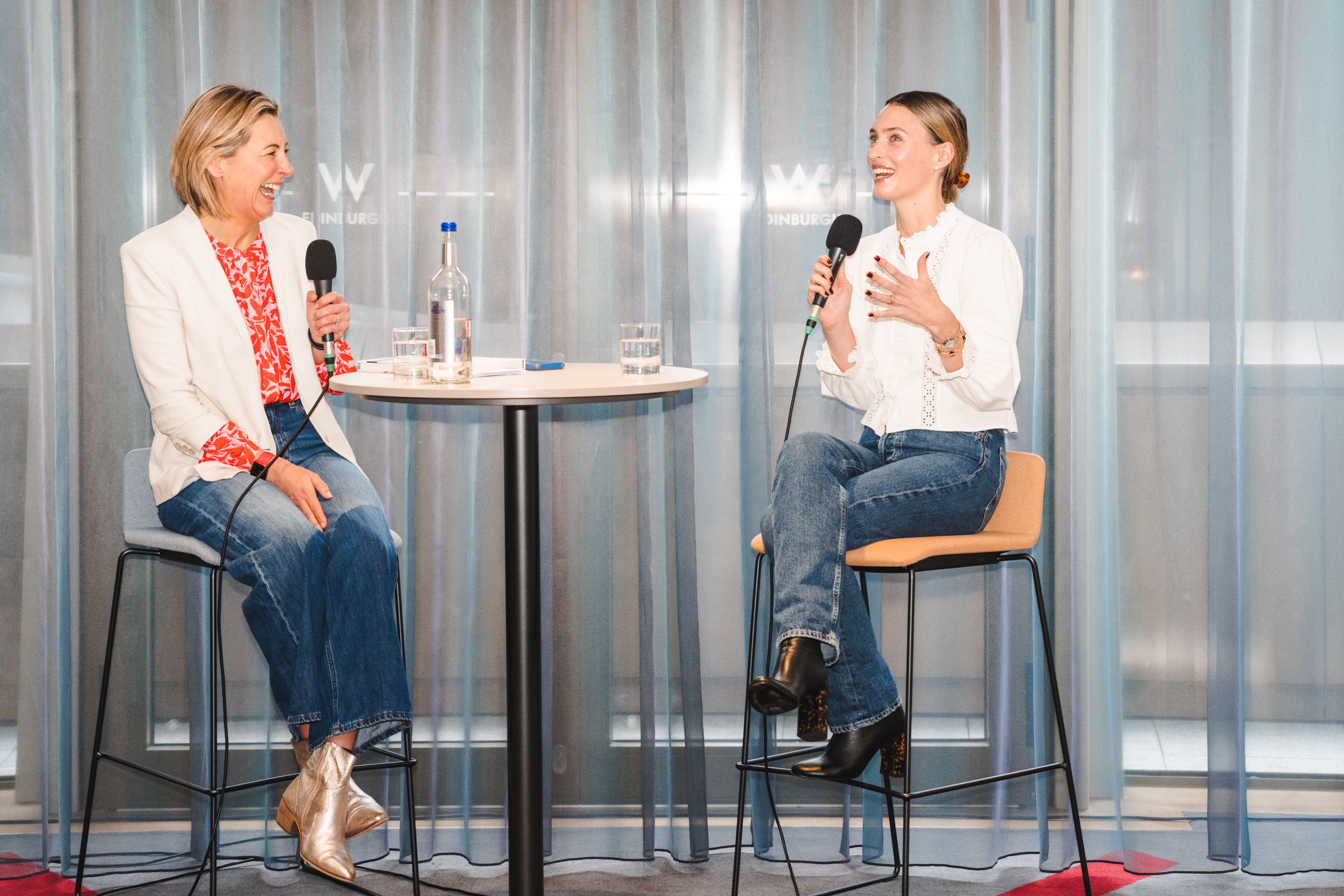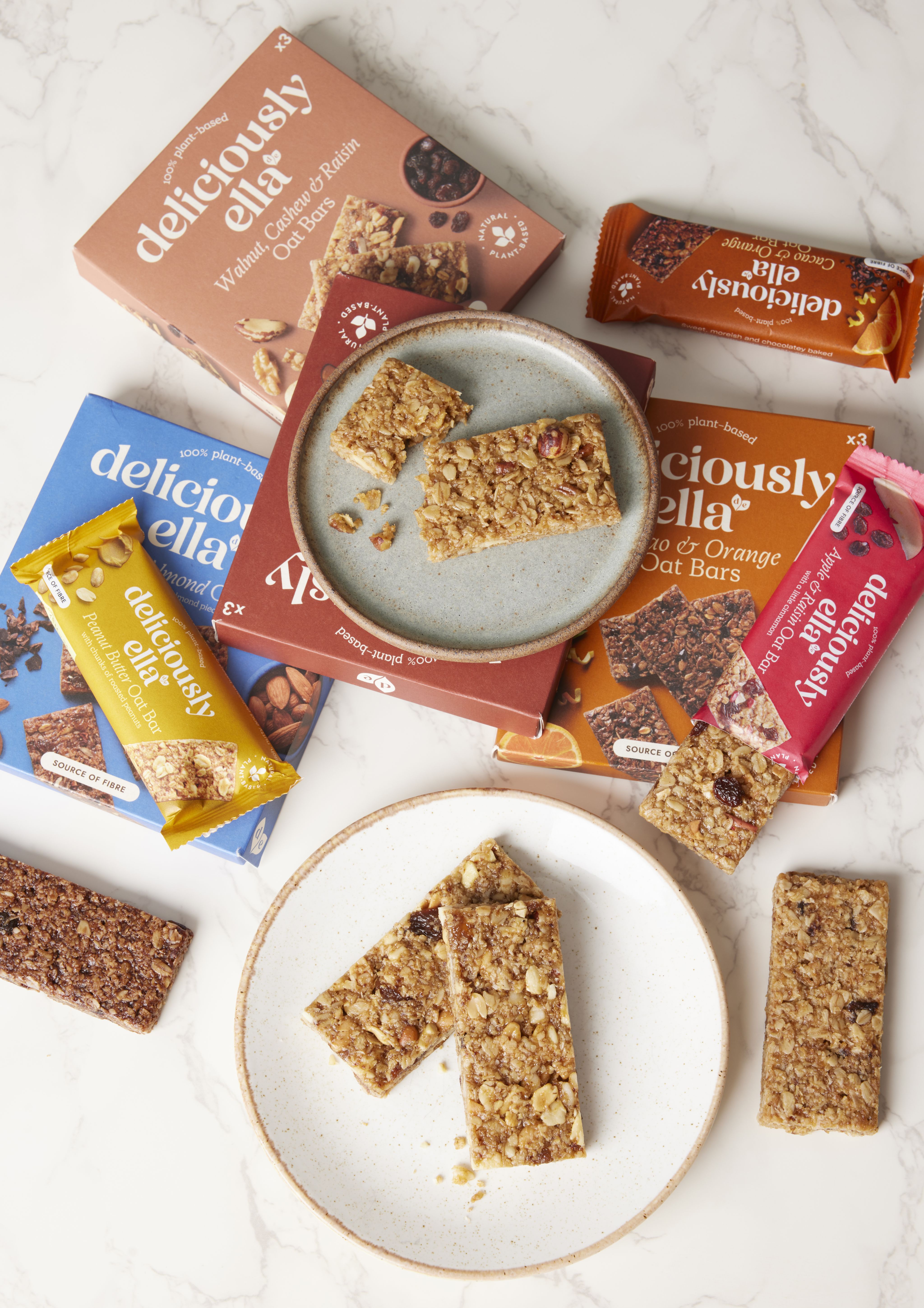Purpose,
not process
Ella Mills, eponymous co-owner of plant-based powerhouse Deliciously Ella, speaks to CA magazine about resilience, the importance of balanced business partnerships and her company’s mission to take healthy food mainstream
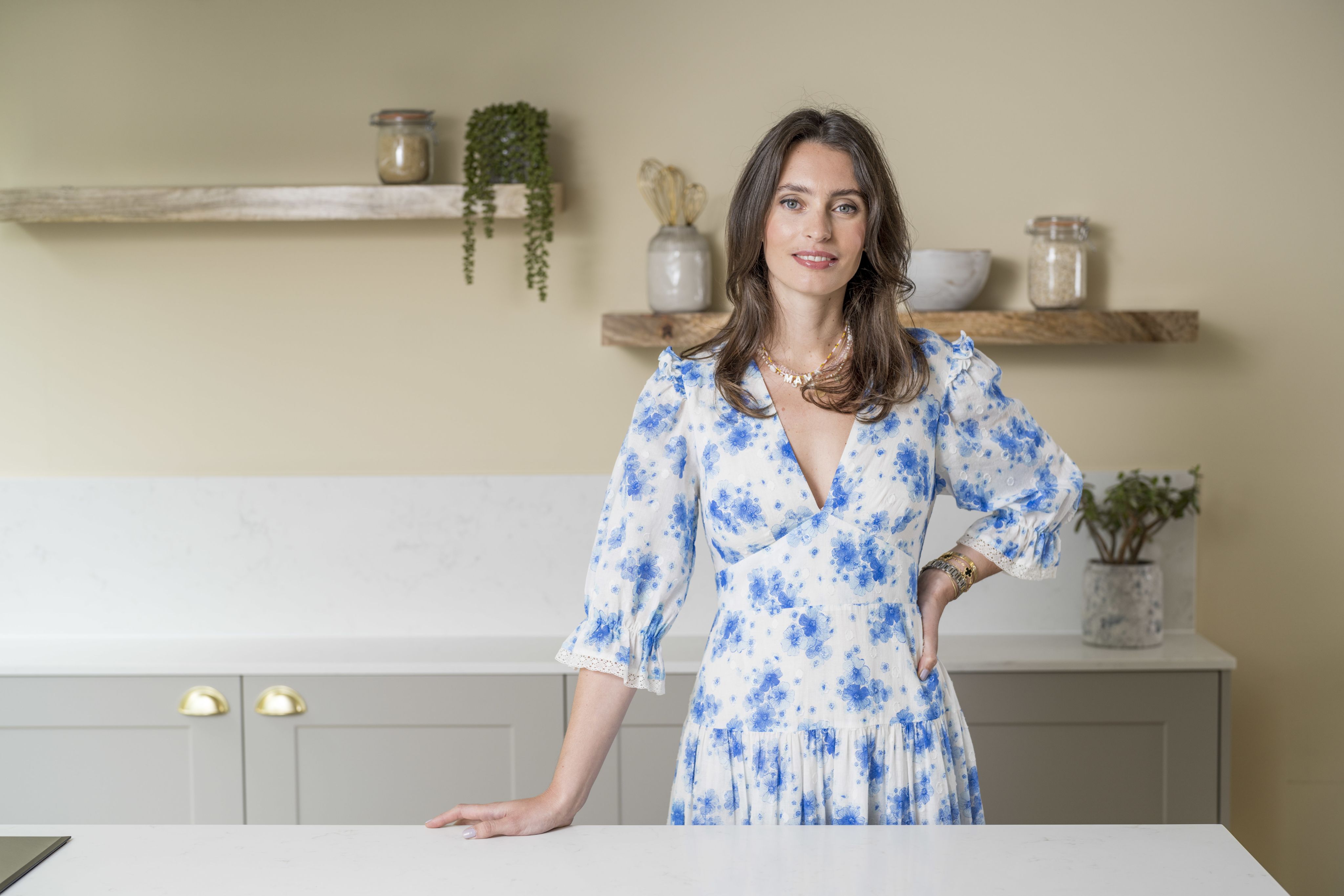

From recipe blogger to entrepreneur, the rise and rise of Ella Mills and the Deliciously Ella brand has been stratospheric. An eighth cookbook, Healthy Made Simple, was published this January and is already a bestseller. To date, Mills has sold nearly 1.5 million books globally, and the Deliciously Ella retail line has sold more than 90 million food products including ready-meals, cereal bars and granola.
There’s a London restaurant, Plants by Deliciously Ella, and a popular recipe app too. But, as Mills reveals, behind the scenes there have been plenty of wrong turns and difficult times, including a fire breaking out in the factory moments before a make-or-break pitch to a major buyer. “There’s no way that we would have got to this point without a really clear sense of mission and purpose,” says Mills. “I think starting and growing a business is a billion, trillion, squillion times harder than anyone tells you it is. There is no work-life balance, it’s all-consuming and you have such an extraordinary amount of responsibility.
“Everybody fails multiple times on the way, it’s inevitable. You just need to get to the point where you only fail 49% of the time. We’ve made endless mistakes and endless things have gone wrong. There’s always some kind of chaos unfolding in the background.
“I always come back to why we do what we do. We want to help people eat real food again and get more plants to more people more of the time. It goes so far beyond me. If you start a business just to make money and sell it in three years, I don’t know how you pick yourself back up when things go wrong.”
Business by accident
While still a student at the University of St Andrews , Ella Woodward (as she was before her marriage) was diagnosed with postural tachycardia syndrome, a condition that affects the nervous system, heart rate and blood pressure. She found improving her diet played an important part in her recovery. So she taught herself to cook and began writing a blog documenting her food journey and building an online community.
“That became the root of everything that we do,” she says. In 2015, her Deliciously Ella debut broke records as the UK’s fastest-selling debut cookbook. Soon after, she met Matthew Mills, who became her husband and business partner as CEO of Deliciously Ella.
Despite both being the children of former New Labour ministers (Ella Mills is the daughter of Shaun Woodward, who crossed the floor from Conservative to Labour, while her mother is part of the Sainsbury dynasty; Matthew Mills is the son of the late Tessa Jowell), they bring complementary skills to the table – something she says is an asset in a business partnership. “I really believe in knowing what you don’t know,” she says. “It’s quite difficult to say, ‘I’m actually not very good at this.’ But once you do it’s very empowering. It frees you up to massively drive forward what you do want to do with the skills that you have.”
“One of our competitors launched a product with a marketing budget of £4m. Our budget was literally £10 – it was on Instagram stories – and we outsold them”
Education
Studied history of art at the University of St Andrews
2012
Launches Deliciously Ella, becoming Brand Director
2015
Her first book, Deliciously Ella, is published, spending eight weeks at No 1 on Amazon; the first Deliciously Ella cafe opens
2016
The first Deliciously Ella food products, a range of energy balls, appear in Waitrose, Starbucks and Whole Foods
2017
Mills and her husband named EY Rising Star at the annual Entrepreneur of the Year awards
2019
Deliciously Ella app launches
2021
The duo open Mayfair restaurant and launch internationally
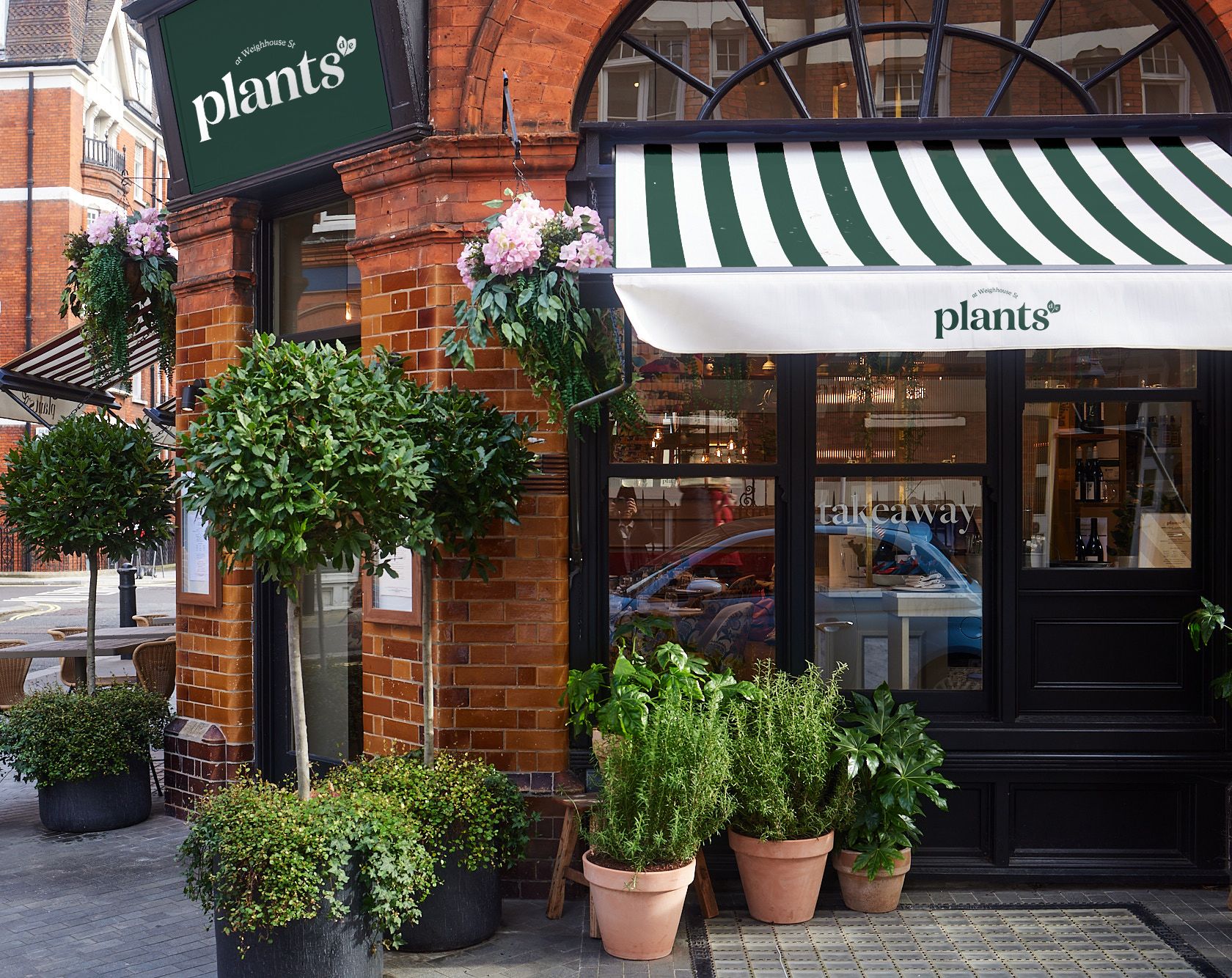
Mills describes her husband as, “the engine in the business. He makes sure everything functions: the people, the finance, the supply chain, the commercial team, the strategy, the data, the insights. He’s on the ground every single day making everything happen.” That allows her the space to drive the brand: “It’s my job to create a brand that means something. To ask, how do we resonate with people? And how do we make sure people buy our products long term? That part is so important, but it’s a totally different skillset. Separating that allows us to be so much more. We always say how much we’ve enabled each other’s careers. I do think that a partnership is incredibly powerful, mostly because none of us are good at everything.”
Despite the firm’s seemingly rapid growth, Mills is emphatic that Deliciously Ella has not enjoyed overnight success: “It’s nine years since the first book came out and Matthew and I started talking about turning the brand and the community into the company that it is today. We never wanted Deliciously Ella to be a lifestyle business. From day one the aim was to make it as big as we can.”
There have of course been setbacks along the way, as well as the aforementioned fire. In 2018, they closed two of their three London cafes after racking up losses of more than £700,000. More recently, though, Fast Company reported Deliciously Ella’s 2022 revenues were up to £20m. Their range is now a staple of the supermarket aisles.
“I really believe that business can be a force for good,” says Mills, “and ultimately businesses can change landscapes and industries. If we can show a different way of eating, a more natural way without ultra-processed ingredients, we’re going to have infinitely more impact than if we stay really small. We’ve always been trying to scale up. It was always what we wanted to do. You can’t ever stay still. You’re either going forward or you’re going backwards – there’s not really anything in between.”
“I really believe that business can be a force for good and ultimately businesses can change landscapes and industries”
Check your bucket
All business owners at times have to deal with criticism. And Mills has become quite the expert, from accusations of promoting “clean eating” (a nutritionally questionable fad that she does not endorse) to the inevitable complaints that “healthy” food is also expensive.
“What I’ve learned is to have two buckets for criticism,” she says. “One is constructive criticism and, yes, sometimes that feels very rude or nasty or very direct. When you’ve poured your heart and soul into something it’s not nice to receive, but if it is constructive, it’s things you can learn from. It’s so important to have that mindset, to try to completely delete any sense of ego. We take criticism on board even when it’s hard.
“And then there’s the criticism for its own sake. Sometimes there’s nothing we can do to make that person happy: for example, a restaurant review was angry because we don’t open on a Sunday. Well, that just works for our business, it’s the right thing for our team to all have a consistent day off. It’s created a real stability that makes our food and restaurant better, so I’m going to take that one star because it’s the right decision for our business. We’ve also had criticism for our business being too big. I understand, but I’m glad we got bigger.”
Sniping aside, Deliciously Ella has built a loyal social media following thanks to the consistency of the company’s messaging. Mills notes that when other more mainstream brands, which have built their reputations on sugary snacks, launch a healthier product line it often fails. “We’ve seen products come in with multimillion-pound marketing budgets, then drop out of the market shortly afterwards,” she says. “Because consumers just don’t buy it, they don’t believe it. They don’t buy the message and then they don’t buy the product.
“Recently, one of our competitors launched a product with a marketing budget of £4m. Our budget was literally £10 – it was on Instagram stories – and we outsold them. I think it’s a really interesting testament to the fact that money doesn’t always translate to sales and success. When you create a level of genuine connection with people, they connect with what you’re trying to do and it’s much more meaningful.”
Before our interview, Mills spoke at the first in a new series of Women on Top events for Egg, Scotland’s largest online platform for women. In Edinburgh’s new W hotel, she addressed a packed room about her career, and the importance of business networks for success. Attendees asked everything from her opinion on air-fryers (a fad, she says), to why the Deliciously Ella recipe app is so cheap (to allow more people to access it).
The cost of living crisis has many people reassessing their food bills, something that could have an adverse effect on diets. “In this country we spend less on food than lots of other countries,” says Mills. “We’re spending about 10% [of household income], whereas it’s high teens in lots of Europe. And that’s often because our other household costs are higher.”
Nutritious food doesn’t have to be expensive, she says: “Lentil bolognese – it’s actually so cheap using carrots, tinned tomato and a tin of lentils. But [the UK is] not helping people learn to do that. It’s not the fault of any one person. Ultra-processed food is super cheap and widely available. And it’s very well marketed by incredibly powerful companies.
“When I read that one in five people now have 80% of their calories from ultra-processed food, or that the total cost of lifestyle and obesity-related diseases is £98bn, I just think we’ve got to change something, and we have a platform to help do that. Even when it gets tough, I’m not throwing that opportunity away. When I hear people’s stories about how Deliciously Ella helped them in their life, that’s what gets me back up again. This is why we do what we do.”
For more stories, visit our leadership hub



